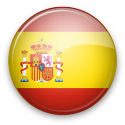
Halloween: Around the world
Halloween is one of the oldest holidays in the world, dating back to the pagan epoch. Today it is celebrated by more people in more countries than ever before. There's one simple reason: it's fun and it's good, clean, harmless and fun for young and old!
First, where it all started: Ireland
In Ireland, which is considered the place where Halloween is celebrated, the day is still celebrated as in the United States. In rural areas, bonfires light up like centuries ago, and throughout the country, children dress up in costumes and spend the evening "trick or treat" in their neighbourhoods. After the trick or treat, most people attend parties with their neighbours and friends. At parties, several games with the neighbours are played, including "snap-apple", a game where an apple on a rope is tied to a doorframe or tree and players try to bite the hanging apple. In addition to bobbing for apples, parents often organize treasure hunts, with candies or pastries as "treasure". The Irish also play a card game where the cards are placed face down on a table with candy or coins underneath them. When a child chooses a card, it receives any prize that is under it.
Mexico and Spain are famous for Día de Los Muertos, or "Day of the Dead", which is celebrated every year on 1 and 2 November. The locals dress like their ancestors and build private altars called "ofrendas", which they use to present gifts - from sugar skulls to tequila - to the dead.
The Hungry Ghost Festival is celebrated throughout Hong Kong and China for a full month, starting on the seventh day of the seventh month of the lunar calendar. This year's celebration began in August and ended on September 12.
Festivities include parades, operas, burning incense, food for the dead and operas to entertain the spirits.
All Souls Day is a religious event in Italy, where people remember their loved ones, but people on the island of Sardinia have celebrated Halloween for centuries carving pumpkins. The locals call them "Concas de Mortu", which means "heads of the dead".
Obon in Japan is a Buddhist festival that lasts three days and its start date varies from mid-July to mid-August. It honours the spirits of local ancestors with pilgrimages to tombs and places associated with the history of a family, and also includes a series of ceremonial dances as part of the festivities.





